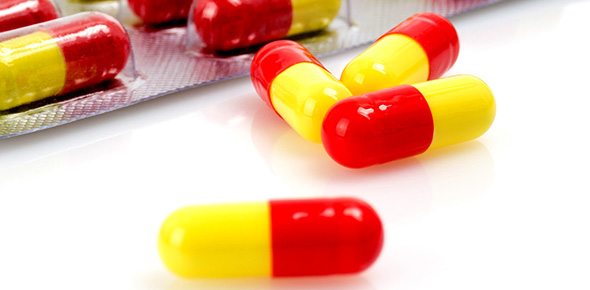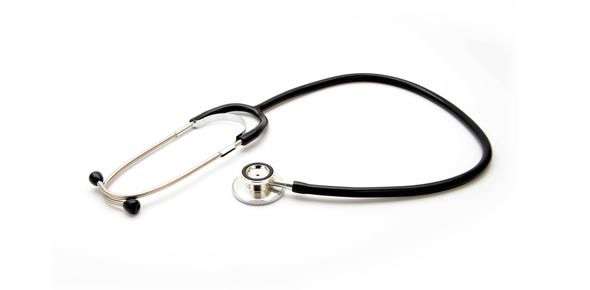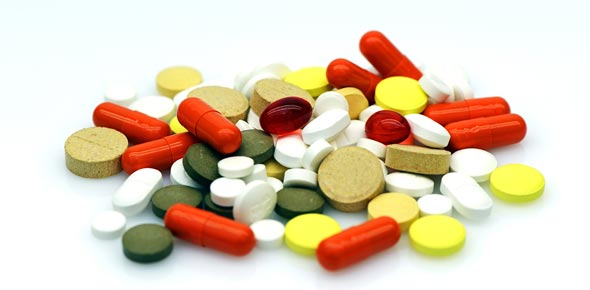Related Flashcards
Related Topics
Cards In This Set
| Front | Back |
|
T/F
1. Patients mostly consider stool consistency when reporting diarrhea. 2. Water transport across intestinal epithelium is always passive. 3. Bacteria are the most common cause of acute diarrhea. 4. Some symptoms of severe dehydration are dizziness, lethargy, and decreased blood pressure and pulse. 5. Water alone is not enough to rehydrate; one should intake fluid with salts and sugars. |
1. T
2. T 3. F 4. F 5. T |
|
All of these statements about the physiology of the GIT are TRUE except:
a. Na+ and Cl- are the major ions secreted. b. Diarrhea occurs when overall reabsorption efficiency falls below 98%. c. Water transport across intestinal epithelium is secondary to gradients generated by transport of Na+, Cl-, sugars, and amino acids. |
A
|
|
Etiologies of acute diarrhea include (choose all that apply):
a. Giardia and Entamoeba b. Food-related toxins c. Antibiotics d. Not consuming enough salts and sugars to rehydrate e. A only f. B and C only |
A, B, C
|
|
Which of the following are commonly associated with acute diarrhea (choose all that apply)?
a. Abnormally frequent watery stools b. Blood in stool c. Fever d. Flatulence |
A, C, D
|
|
All of these conditions need referral to MD except:
a. High fever (>101F) b. Significant diarrhea for more than 24 hrs c. Chronic diarrhea (longer than 4-6 weeks) d. Severe (>10%) dehydration |
B
|
|
The MOB of an antiperistaltic is:
a. Slows intestinal motility b. Speeds up intestinal motility for better fluid absorption c. It is synthetic opiod agonist that stimulates opiod receptors of intestinal smooth muscle d. A and C e. B and C |
D
|
|
Toxic Megacolon is a major contraindicator for which of these pharmacological treatments of diarrhea?
a. Antisecretory b. Antiperistaltic c. Adsorbents |
B
|
|
If your patient has symptoms of diarrhea you should not recommend BSS if he/she is:
I. Taking Warfarin II. Allergic to ASA III. Allergic to NSAIDs a. I only b. I and II only c. II and III only |
B
|
|
T/F
1. While internal hemorrhoids are painful, external hemorrhoids are painless. 2. Phenylephrine, an agent used for nasal decongestion, could also be used to treat hemorrhoids using the same MOA. 3. Analgesics / Anesthetics / Antipruritics used for hemorrhoids work in a similiar way to counterirritants in treatment of musculoskeletal pain. 4. Astringents treat hemorrhoids by a moistening effect. 5. Thrombosis is the falling down or slipping of a body part from its usual position. |
1. F
2. T 3. T 4. F 5. F |
|
Hemorrhoids are abnormally large, bulging conglomerates of _______in the anorectum.
a. Mucus membranes b. Vessels c. Tissues d. B and C only e. All of the above |
E
|
|
What are the 5 etiologies of hemorrhoids?
a. b. c. d. e. |
Hereditary, Posture, Diet/lifestyle, Pregnancy, Bowel habits
|
|
Which of these symptoms of hemorrhoids are serious, and need(s) referral? (choose all that apply)
a. Prolapse b. Burning and swelling c. Thrombosis d. Bleeding e. Itching |
A, C, D
|
|
All of these conditions must be referred except:
a. Kids < 12 yrs old b. patients with diagnosed GI disorders c. family history of colon cancer e. hemorrhoids which are non-responsive to 7 days of self-treatment |
B
|
|
If your patient (with PMH of diabetes and HTN) complaints of hemorrhoid symptoms, you should least likely recommend which one of these OTC treatment options:
a. Local anesthetics b. Vasoconstrictors c. Protectants d. Astringents e. Corticosteroids f. Keratolytics g. Analgesics / Anesthetics / Antipruritics |
B
|
|
T/F
1. Most intestinal gas results from aerophagia or ingestion of poorly digestible substances which are fermented by colonic bacteria. 2. In particular, flatus is usually caused by colonic bacterial fermentation, and eructation is essentially caused by swallowed air. 3. Carbohydrates are well absorbed in healthy people, but not in those with diseased gut conditions. 4. The use of antibiotics may cause both diarrhea and intestinal gas. 5. Carbohydrates that are incompletely absorbed undergo fermentation by bacteria to produce gas in the small intestine. |
1. T
2. T 3. F 4. T 5. F |







